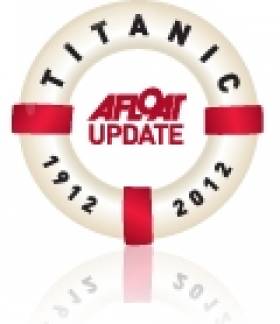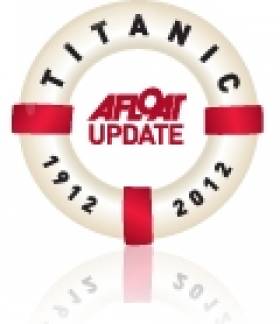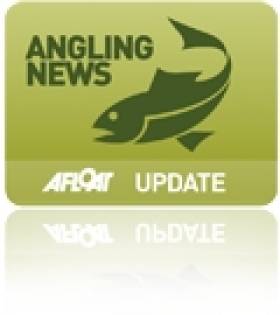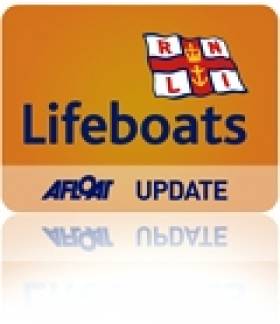Displaying items by tag: plaque
First Irishman to Dive Titanic Site Shares His Story
#TITANIC - To mark the 100th anniversary of the sinking of the Titanic, JOE.ie sat down with the first Irishman to dive the historic wreckage.
In 2000, Rory Golden descended two-and-a-half miles beneath the surface of the Atlantic to witness the Titanic's watery gravesite.
“When I first cast my eyes on the wreck," he says, "for me it was just an incredibly exciting and equally humbling and incredibly poignant moment and you have all these emotions all at once because you are looking at something very few people in the world have seen.”
Amazingly, the self-avowed Titanic expert wasn't originally a part of the dive team for the expedition.
"My role at the time was to be the dive safety supervisor, but that whole role changed over the course of the expedition," he says. “There was no guarantee of me going down there because I was very low in the pecking order."
But a memorial plaque he brought with him from Cobh ended up being Golden's ticket to the TItanic, joining the crew aboard an 18-tonne Russian submarine.
And he came back with more than memories, too, as a glint in the corner of his eye turned out to be the remains of the ship's wheel.
"I was the first person to touch the wheel of the ship since it went down in 1912 and probably the last person to hold it before it went down was Captain Smith.”
JOE.ie has much more on the story HERE.
Plaque Honours Famous Playwright and Titanic Orphan
#TITANIC - A plaque honouring Titanic orphan and playwright William Ruddick Millar has been unveiled in his hometown of Carrickfergus, the News Letter reports.
Millar was orphaned at five years old when his father, a deck engineer on the ill-fated ocean liner, went down with the ship after it struck an iceberg on 15 April 1912.
He faced a difficult childhood, he and his brother Thomas joining their eight cousins under the care of a great aunt.
But by the age of 18 he had already seen one of his plays performed at the Grand Opera House in Belfast.
In the decades after he became a renowned author famous for titles such as Stirabout, When Johnny Comes Marching Home and The Land Girl. He also wrote for radio as well as books and newspaper articles.
Great-granddaughter Susie Millar was on hand for the unveiling at the cottage where he was raised by his great aunt. “Our entire family are so proud to have him remembered in this way," she said.
The News Letter has much more on the story HERE.
Tribute to River Liffey Salmon Pioneer
#ANGLING - A plaque paying tribute to the late secretary of the Dublin Salmon Anglers' Association has been inveiled at Carton Estate in Co Kildare.
Patrick 'Pat' O'Molloy, who died in November last year, was commemmorated for his pioneering work over the last 35 years in the rehabilitation and restoration of wild salmon stock in the River Liffey, The Irish Times reports.
This involved introducing micro-tagged smolts into the Rye, a tributary of the Liffey upriver of the Carton Estate weir which was impassable from further downstream.
Sadly O'Molloy died before the return of salmon to the Liffey in a year that also saw their return to the Tolka afer more than a century.
Former fisheries CEO Alan McGurdy said at the ceremony: "As you all know, Pat was an angler, a board member, environmentalist, fish farmer and most of all, a friend.
"Today is some recognition to the great man for the tremendous work he did to look after our fish."
Special Plaque Remembers Portrush Lifeboat Tragedy
The three volunteer crew men who lost their lives were James McAlister, a local fisherman, William McNeill and Galbraith Hamilton Grills, the Chief Officer of the Coastguard at Portrush.
To-day on the anniversary of that tragic night, William McNeill's great grandson Ronald Handy and his wife Lily presented the Station with a plaque in memory of the three crew men who lost their lives on that November night in 1889.
On an interesting note, Tracey McAlister the great great granddaughter of James McAlister is presently the press officer for Portrush Fundraising team, thus continuing the family links with the Lifeboat.



























































